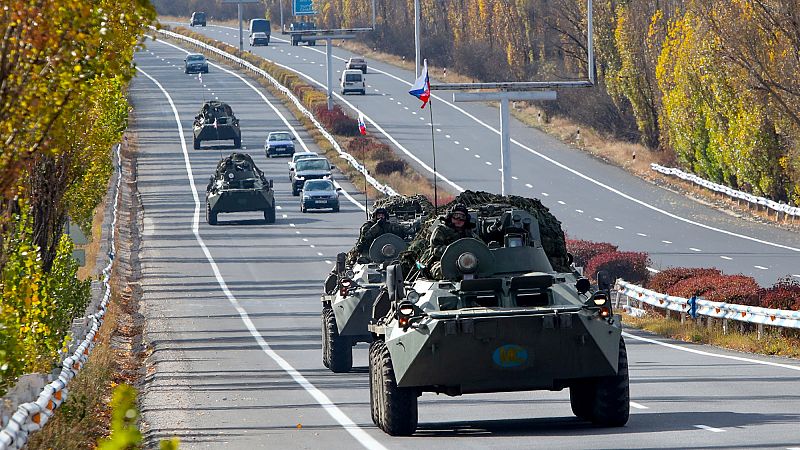Ukraine’s Military Intelligence Claims Russia is Strengthening its Presence in Armenia
Ukraine’s military intelligence (HUR) has reported that Russia is increasing and reinforcing its military presence in Armenia. This comes after Kyiv first raised concerns about the move, which was denied by Yerevan. According to HUR, the Russian military is expanding its operations at a base in Gyumri, aiming to exert greater influence in the South Caucasus and potentially destabilize global security.
On July 5, Ukrainian military intelligence stated that Moscow was deploying more forces to the Gyumri base. However, Armenia’s Foreign Ministry quickly dismissed the claim. Days later, HUR released what it described as an order from the commander of the Southern Military District of the Russian Armed Forces, detailing plans to “replenish” the Russian military base in Armenia.
The document outlines specific steps for the urgent “replenishment” of the units stationed there. It mentions selecting personnel from the 8th, 18th, 49th, and 58th combined arms armies of the Southern Military District. The order also instructs commanders to facilitate the selection process, emphasizing criteria such as professional fitness, psychological resilience, and combat readiness. Notably, the document explicitly prohibits the recruitment of individuals involved in drug trafficking or the distribution of psychotropic substances.
Ukraine’s HUR claims that this deployment is part of a broader Kremlin strategy aimed at destabilizing global security. The agency suggests that alongside inciting interethnic conflicts, Moscow is building up its military presence in the Caucasus. It is likely that the worsening relations between Azerbaijan and Russia were planned in advance.
Strategic Importance of the Gyumri Military Base
Gyumri, the second-largest city in Armenia with a population of over 100,000, holds strategic significance due to its proximity to the border with Turkey. Located around 100 kilometers northwest of the capital, Yerevan, the city sits just 3.5 kilometers away from the Turkish border. This positioning makes it a key location for regional military operations.
Armenia and Russia established the 102nd Military Base in Gyumri during the 1990s. Initially, the base was intended to protect the border with Turkey and enable quick deployment to the Karabakh region if needed. However, this did not materialize in 2023 when Baku reclaimed full control of the Karabakh region following a swift military campaign.
In 2024, Armenia took an unexpected step by freezing its participation in the Kremlin-led Collective Security Treaty Organisation (CSTO), Moscow’s counterpart to NATO. Prime Minister Nikol Pashinyan had previously expressed doubts about the benefits of Russian troop presence in Armenia. Despite this, the Gyumri base remained operational, as both countries agreed in 2010 to extend the lease until 2044.
The 102nd military base is the largest Russian facility in the South Caucasus, hosting up to 5,000 personnel. It includes MiG-29 fighter jets and S-300 air defense systems. However, as Armenia seeks to normalize relations with Azerbaijan and Turkey, the Russian base is increasingly viewed as counterproductive to Yerevan’s interests.
Armenia’s Efforts to Improve Relations
Armenia is now working to reopen its joint border with Turkey, which could enhance diplomatic ties and help reduce the country’s isolation. Turkey, a close ally of Azerbaijan, closed the border crossing point in 1993 in support of Baku during the conflict in the Karabakh region.
With rising tensions between Azerbaijan and Russia, Turkish President Recep Tayyip Erdogan has expressed support for Armenia’s peace initiatives with Baku. Recent events, including the deaths of two ethnic Azerbaijanis arrested in Russia for long-standing murders and the crash of an Azerbaijan Airlines passenger jet in December—blamed on Moscow by Baku—have further strained relations between the two nations.
As the situation continues to evolve, the role of the Gyumri base remains a critical point of discussion. Its strategic importance, combined with shifting geopolitical dynamics, ensures that its future will be closely watched by regional and international observers alike.







